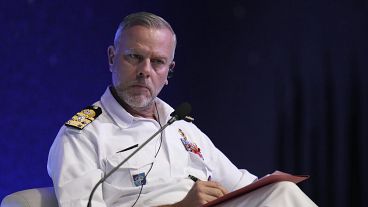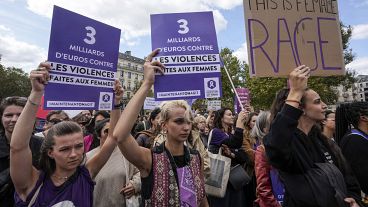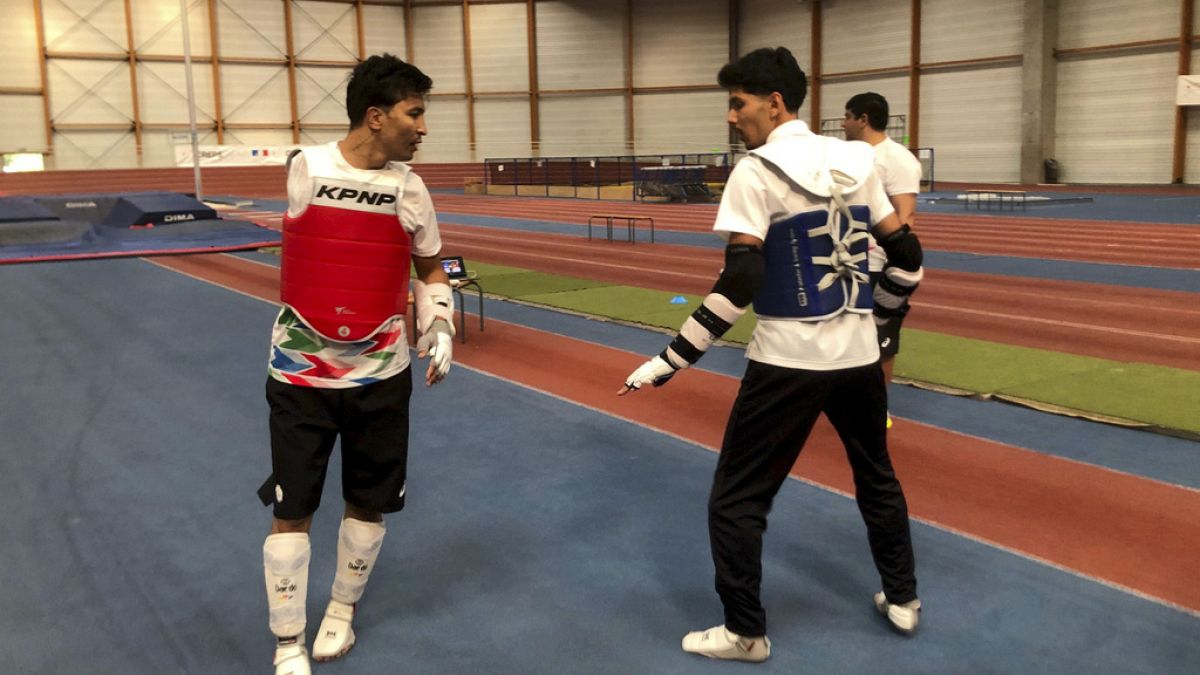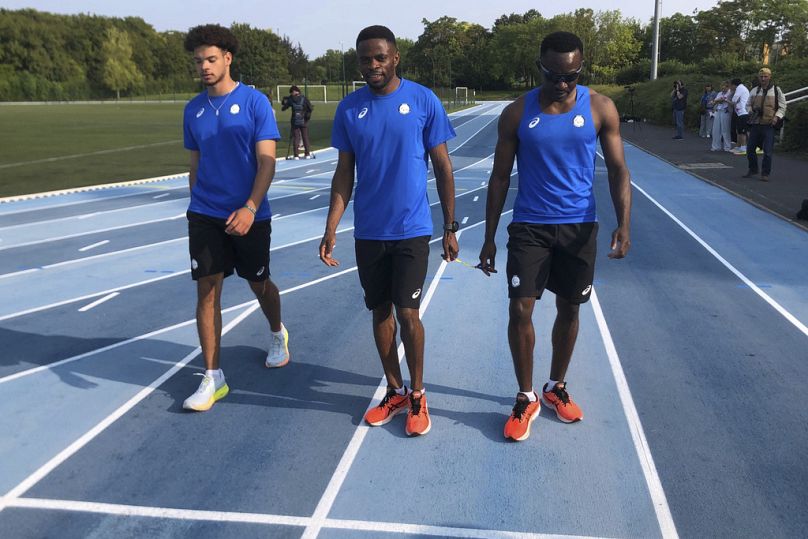After paralympic athletes defeated so many obstacles to reach the games, they're hoping to share a message of resilience.
Athletes from the Refugee Paralympic Team are aiming to deliver a message of hope as they compete for medals at the 2024 Paralympic Games, which begin in Paris next week.
The team of eight Paralympians and one running guide, all of whom have fled conflict and persecution in their home countries, are set to compete in six sports: para-athletics, para-powerlifting, para-table tennis, para-taekwondo, para-triathlon, and wheelchair fencing.
Among them is Syrian para-triathlete Ibrahim Al Hussein, who lost his right foot and parts of his left foot during the 2012 civil war that devastated his country and forced him to seek refuge in Greece.
“I left Syria in a wheelchair, and I want to send a message of perseverance and hope to everyone who feels miserable or bad about themselves,” Al Hussein shared with The Associated Press from the team’s training camp in Reims.
Al Hussein, like many of his teammates, is determined to prove that despite the dual challenges of disability and displacement, success is achievable.
Overcoming numerous obstacles, including years spent in crowded refugee camps with limited or no access to training facilities, Al Hussein and his teammates have reached the pinnacle of their sports.
Hadi Darvish, an Iranian para-powerlifter, faced the hurdle of not being able to open a bank account due to his refugee status which meant that he could not pay for the gym, once arrived in Germany. But his perseverance paid off when he found a place to train, eventually winning first place in the 2022 German National Championships among able-bodied competitors.
Guillaume Junior Atangana, who lost his eyesight, thought his dreams of becoming a professional athlete were over. However, running with the help of a guide opened up new possibilities.
“I’ve managed to achieve performances that some able-bodied people can’t,” Atangana told AP. After placing fourth in the 400 metres at the 2020 Tokyo Paralympic Games, he is now aiming for a medal in Paris.
Zakia Khudadadi, the only woman on the team, made history in Tokyo as the first Afghan female athlete to compete in an international sporting event since the Taliban regained control of Afghanistan. She is now preparing for her second Paralympic Games.
Khudadadi born without a forearm, began practicing taekwondo at age 11, overcoming numerous obstacles along the way.
“Life for all girls and women in Afghanistan is forbidden. It’s over,” Khudadadi told the AP earlier this month. “I’m here to win a medal in Paris for them. I want to show strength to all women and girls in Afghanistan.”
The Refugee Paralympic Team will be at the front of the the Opening Ceremony parade on August 28 along the Champs-Elysees.













